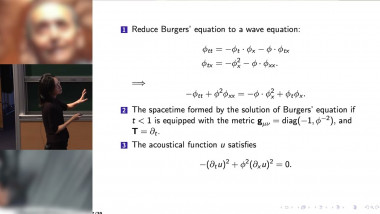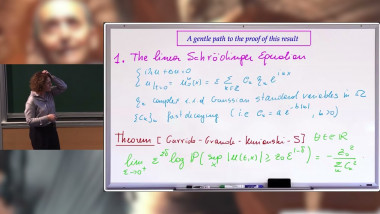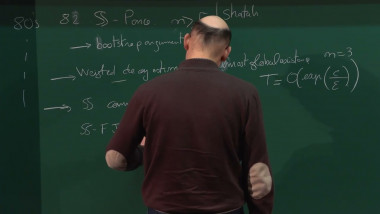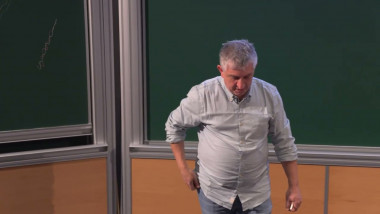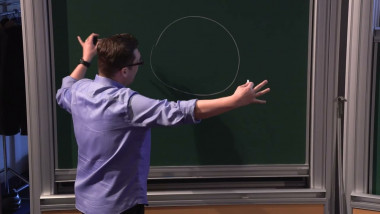Appears in collection : PDE & Probability in interaction: functional inequalities, optimal transport and particle systems / Interactions EDP/Probabilité: inégalités fonctionnelles, transport optimal et systèmes de particules
In this talk, we start by studying a particular model for opinion dynamics where the influence weights of agents evolve in time via an equation which is coupled with the opinions' evolution. We explore the natural question of the large population limit with two approaches: the now classical mean-field limit and the more recent graph limit. After establishing the existence and uniqueness of solutions to the models that we will consider, we provide a rigorous mathematical justification for taking the graph limit in a general context. Then, establishing the key notion of indistinguishability, which is a necessary framework to consider the mean-field limit, we prove the subordination of the mean-field limit to the graph one in that context. We finish with the study of interacting particle systems posed on weighted random graphs. In that aim, we introduce a general framework for the construction of weighted random graphs. We prove that as the number of particles tends to infinity, the finite-dimensional particle system converges in probability to the solution of a deterministic graph-limit equation in which the graphon prescribing the interaction is given by the first moment of the weighted random graph law.
